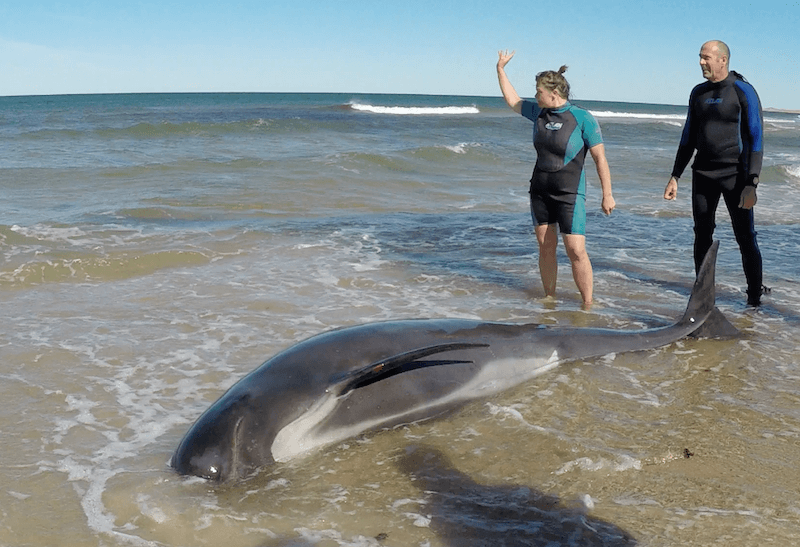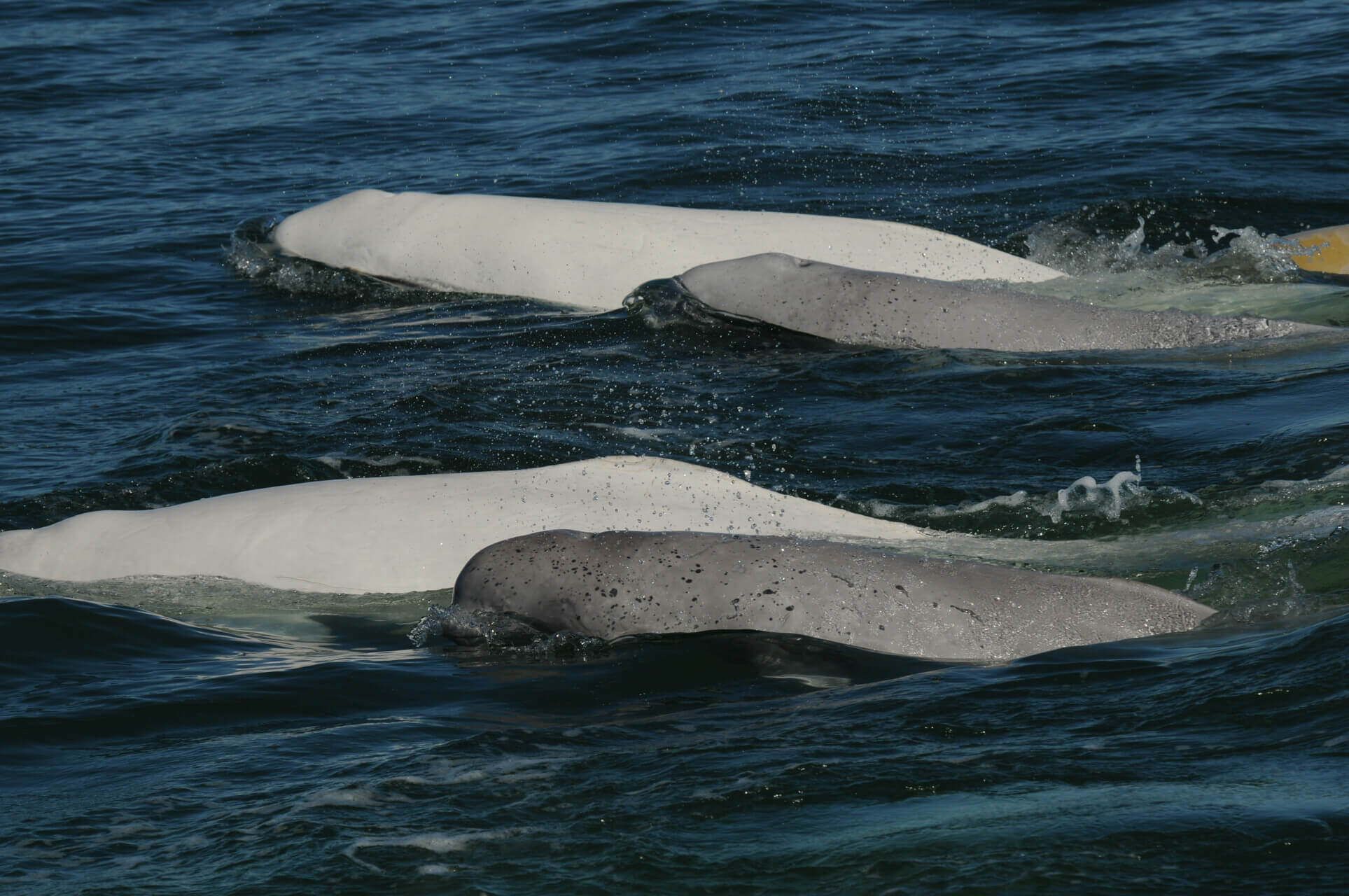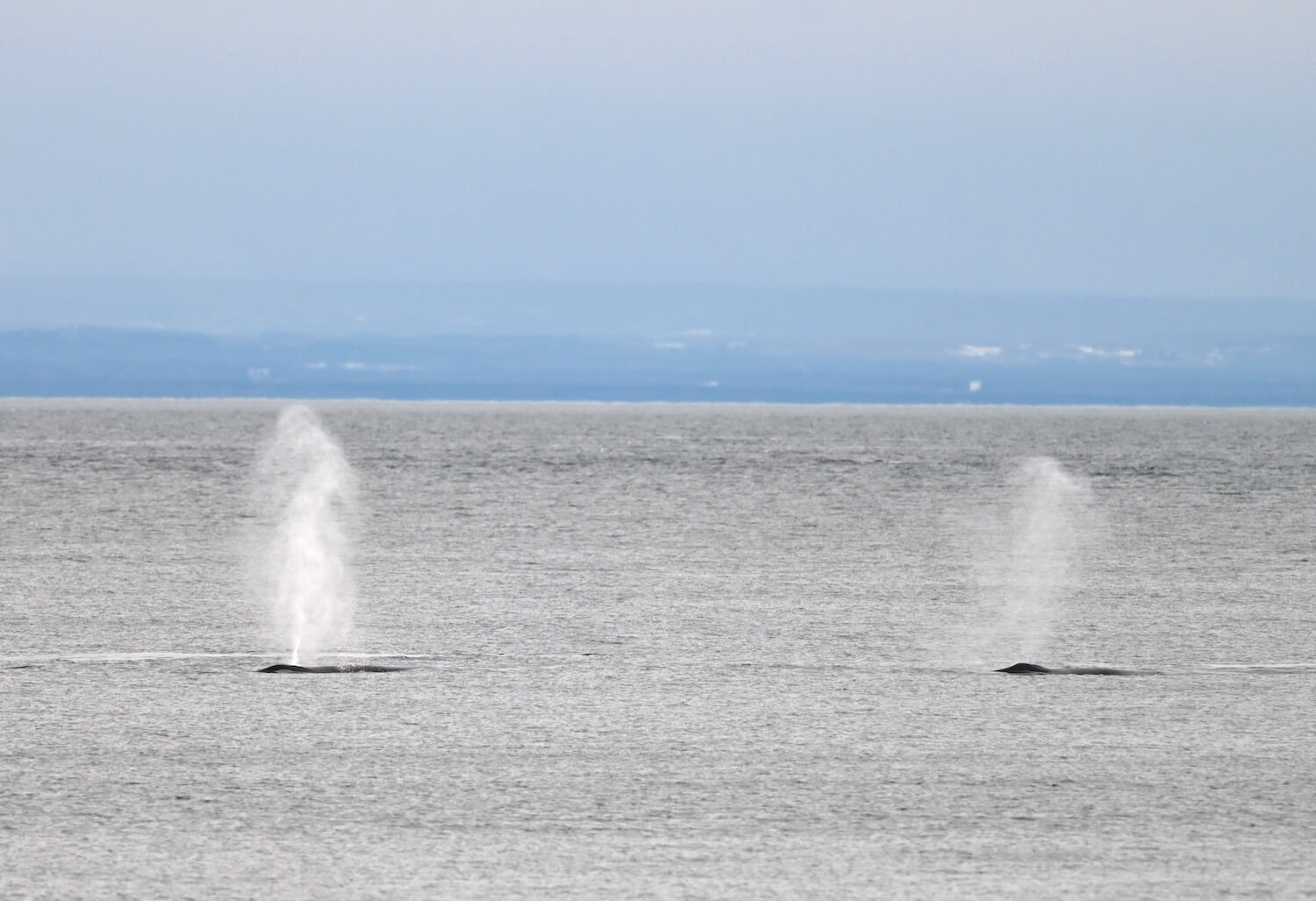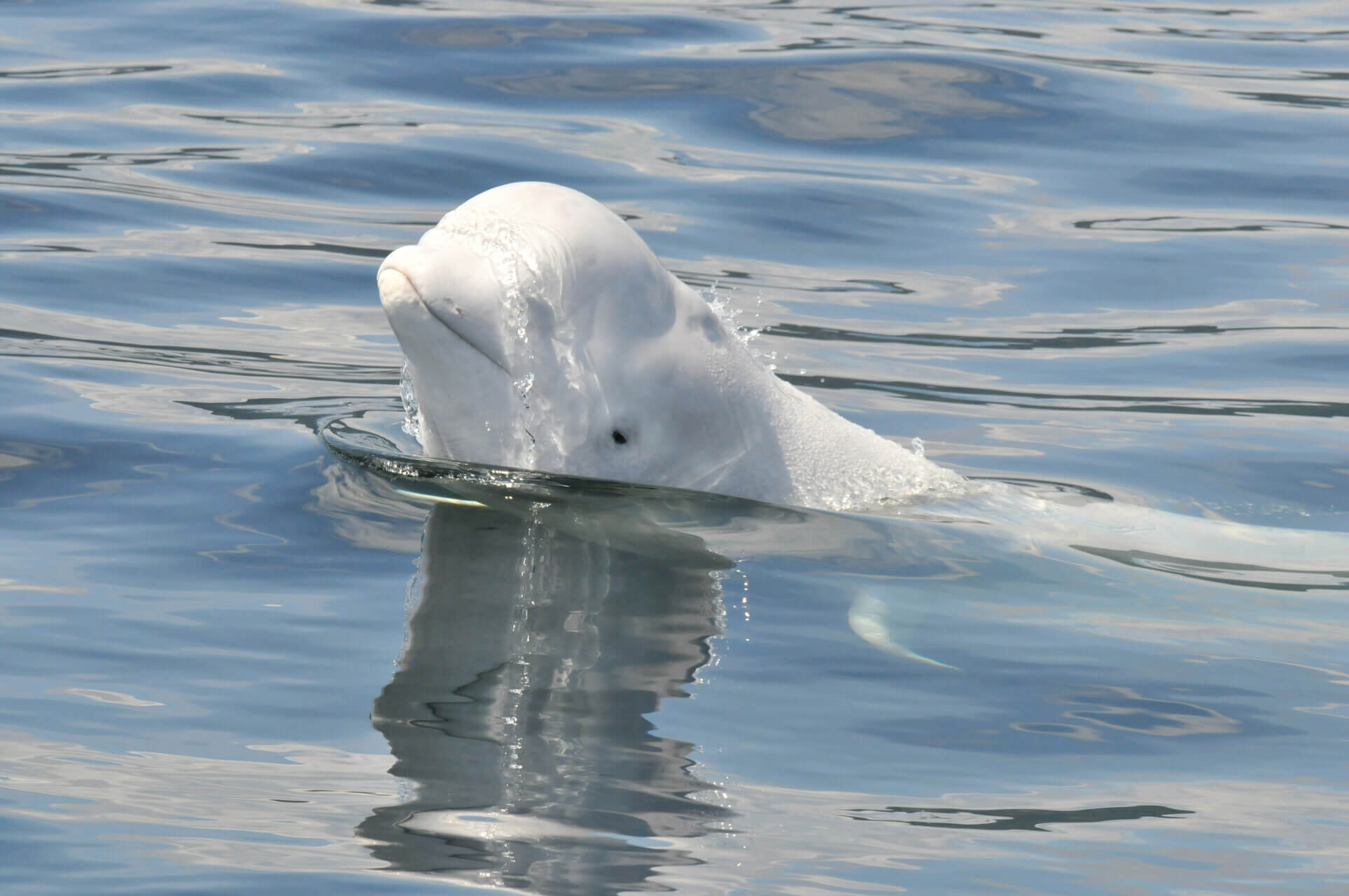A beached animal might be sick, exhausted, injured or disoriented. If it is a young individual, it may be due to a lack of experience or the fact that it has only recently been weaned. Cetaceans can also become stranded due to human activities such as subsequent to an entanglement in fishing gear, a collision with a boat, injury from a firearm or following a disturbance of some kind.
The term “mass stranding” is used anytime two or more cetaceans are found beached in the same geographic area or in the course of a single tidal cycle. There are a number of hypotheses as to the causes of this still mysterious phenomenon. Strandings mainly involve toothed whales and dolphins in particular (such as the long-finned pilot whale ). Given the very strong social cohesion of these animals, it is highly probable that if one of them experiences difficulties and comes to be stranded, the rest of the group will follow suit.
A group approaching the coast while attempting to flee from a predator might accidentally become beached. Unfamiliar topography such as a flat, sandy or muddy seabed and gentle slopes may render navigation more difficult. The animals then find themselves trapped and disoriented. For example, the hook shape of Wellfleet Bay in Cape Cod might explain why 60% of the mass strandings of this region occur there. Also in this bay, the tidal range (difference between high tide and low tide) is 4 m on the day of the full moon. Animals can become stranded when the tide falls. Meteorological phenomena such as storm waves sometimes push the animals closer to shore than usual, where they then become trapped. It is also believed that acoustic disturbances such as oil exploration and the use of military sonar affect the sound waves that cetaceans use to navigate. For example, the stranding of a Blainville’s beaked whale in 2000 coincides with important sonar exercises conducted by the US Navy. In the case of Wellfleet Bay, these strandings have been occurring for years, so it is highly unlikely that they are attributable to humans.
In 1930, 27 long-finned pilot whales became beached just east of Trois-Pistoles, Quebec, at Grève Morency (Morency beach). More recently, on August 5, 2015, 16 long-finned pilot whales became stranded near Bayfield, in Cape Breton, Nova Scotia.





